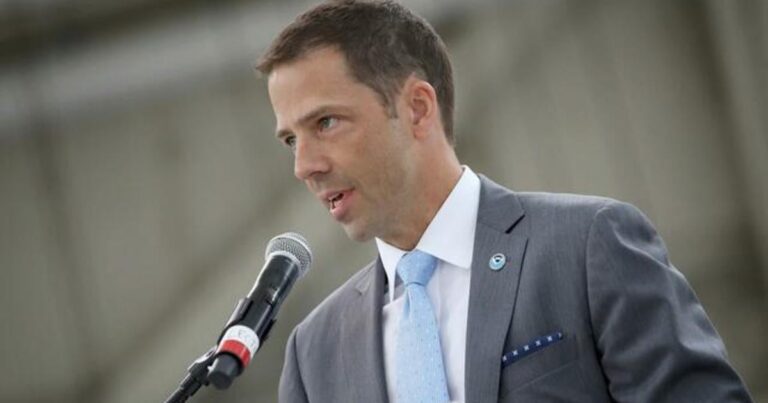Former Top NOAA Scientist Under Trump Issues a "Sharpie-gate" Warning
In recent discussions surrounding climate change and environmental policy, a familiar name surfaced—Dr. Neil Jacobs, a former top scientist at the National Oceanic and Atmospheric Administration (NOAA) during the Trump administration. Dr. Jacobs is raising alarms over potential misinformation regarding climate science, drawing parallels to the infamous "Sharpie-gate" incident that emerged during Hurricane Dorian in 2019. His warnings are not only relevant to climate thrillers but are critical for the future of scientific integrity in a politicized landscape.

The Sharpie-Gate Incident
To recap, "Sharpie-gate" refers to an incident where President Trump presented an altered map of Hurricane Dorian’s projected path, using a Sharpie to extend the storm’s trajectory into Alabama, despite meteorologists stating that the state was not in the storm’s path. This incident raised numerous questions about the reliability of government data and the influence of political narratives on scientific information.
Dr. Jacobs, who served as the acting NOAA Administrator, witnessed firsthand how political pressure could distort scientific facts. In a recent interview, he expressed concern that the Sharpie incident was not merely a standalone event but a manifestation of a larger issue—misleading Americans about climate change impacts and management. He warns that when scientific data is manipulated or misrepresented, it undermines public trust, ultimately jeopardizing effective policy and interventions.

The Importance of Scientific Integrity
The science behind climate change is compelling. According to the Intergovernmental Panel on Climate Change (IPCC), scientists have high confidence that human activities are responsible for about 1.0°C of global warming above pre-industrial levels. Furthermore, the effects are manifesting in more frequent and severe weather events—like hurricanes, floods, and wildfires. With studies estimating economic losses due to climate change could reach $23 trillion by 2050, the stakes for accurate, data-driven policy could not be higher.
Choosing to ignore scientific evidence for short-term political gain can have disastrous consequences. Dr. Jacobs highlighted that conveying accurate climate data is crucial for effective government response. Unfortunately, he argues that political pressures often lead to the suppression or misrepresentation of vital information.

Consequences of Misinformation
As misinformation becomes more commonplace, the implications extend beyond just the immediate effects of climate policies. According to a Pew Research study, nearly 69% of Americans report they are "very worried" about climate change, but misinformation can undermine public concern and power debates that shift the focus away from urgently needed reforms.
One particularly disturbing trend is the rise in scientific disinformation from credible sources. Dr. Jacobs points to various sectors—including media and politics—where inaccurate statements about climate science can proliferate more rapidly than verified data. For instance, during the COVID-19 pandemic, public acceptance of scientific recommendations declined at alarming rates in certain demographics, a trend that could easily be mirrored in climate science and sustainability efforts.

The Path Forward
Addressing the growing misalignment between scientific evidence and public perception requires accountability from all stakeholders. Dr. Jacobs advocates for a renewed commitment to transparency in scientific communication. He urges government agencies, scientists, and the media to work together to counteract misinformation and reinforce public trust in data-driven conclusions.
Education plays a critical role in this process. According to a survey by the National Science Board, only 48% of Americans are "knowledgeable" about the causes and consequences of climate change. Promoting climate literacy can empower individuals to discern credible information and understand the gravity and implications of climate dynamics.

Conclusion
As Dr. Neil Jacobs calls for vigilance against the patterns of misinformation reminiscent of the "Sharpie-gate" incident, it becomes clear that scientists, policymakers, and the public must stand united against the tide of distortion. The foundation of our future—both environmentally and sociopolitically—rests on the clarity and integrity of our scientific discourse. As climate change remains an existential threat, ensuring that accurate information prevails will be paramount for effective action and a sustainable future.
In a world rife with challenges, the synthesis of science, policy, and public understanding will steer the course for generations to come. It’s essential not just to inform but to inspire a collective movement grounded in facts. After all, the planet’s future hangs in the balance.


